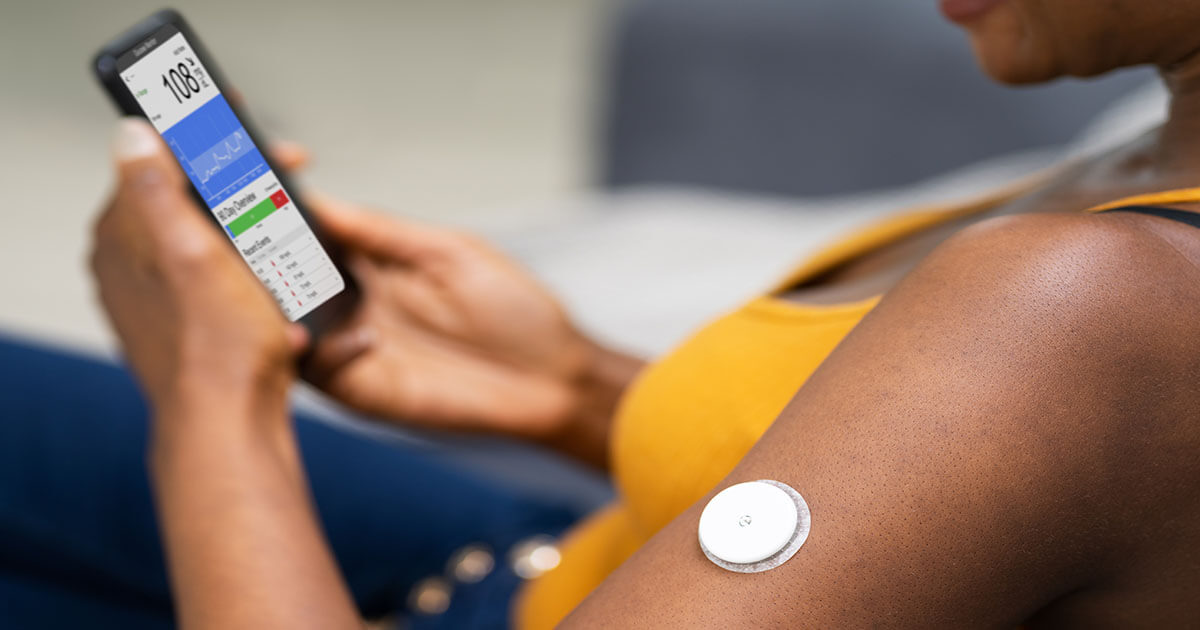Diabetes continues to be a serious health risk in the UK, first and foremost to the young person with diabetes who faces the possibility of compromised health and wellbeing with a reduced life expectancy in excess of 20 years. Furthermore, diabetes claims approximately 10% of total health resource expenditure, with a projected increase to 17% by 2035/36. If trends continue, a doubling of new cases of type 1 diabetes in European Union children under the age of 5 years is predicted by 2020 and prevalent cases in those under 15 years will rise by 70%, creating an even greater health burden.
Complications related to diabetes account for a substantial proportion of the direct health costs. However, with early diagnosis, good patient self-management education, clinical and psychological support, and ongoing care, many of these complications are completely avoidable.
The recent report from the National Paediatric Diabetes Audit (NPDA; Royal College of Paediatrics and Child Health, 2015) still shows gross variability in the quality of care across England and Wales. Approximately 25% of children and young people (CYP) were classified as being at “high risk” of developing diabetes complications and 82% were struggling to meet the previous NICE HbA1c target of <58 mmol/mol (<7.5%) HbA1c. However, the NPDA data will dramatically change when the new NICE guideline (NICE, 2015) target level of 48 mmol/mol (6.5%) is applied.
We still endeavour to improve HbA1c for our CYP with diabetes and to reduce the number at high risk using benchmarking data from our European colleagues (Table 1). The NPDA also highlights poor completion rates of care processes and a high percentage of our CYP with vascular complications. Other publications also report sub-optimal outcomes, with the NHS Atlas of Variation in Healthcare for Children and Young People (Right Care, 2012) still reporting variations in glycaemic control and also alarming differences in diabetic ketoacidosis admissions. Against this background, our CYP face an increased risk of short-, mid- and long-term clinical complications and compromised social and psychological wellbeing.
With the aim of improving outcomes and tackling the variation seen across the country, a National Peer Review Quality Assurance Programme for CYP with diabetes was developed in 2012 based on the following fundamental principles:
- An emphasis on being clinically led.
- Consistency in the delivery of the programme.
- A developmental approach.
- A focus on systems and services within and across organisations in the Regional CYP’s Diabetes Network to ensure coordination of patient care.
- Peer-on-peer review where a visit takes place.
- Integration with other review systems (e.g. Care Quality Commission).
- User and carer involvement.
Measures were developed to assess the programme that were based on Department of Health policy statements and documentation, including the Best Practice Tariff (BPT) and NICE guidelines, along with the feasibility study of diabetes peer review originally commissioned by Yorkshire and the Humber Strategic Health Authority in 2011/12. Reference was also made to the West Midlands Diabetes Peer Review pilot study of 2012 (National Peer Review Programme, 2013). They were the first national quality measures for diabetes services for CYP and have been recently reviewed following the first cycle of comprehensive peer review.
The measures cover three areas of care and are designed to enable quality improvement both in terms of clinical and patient outcomes:
- Regional CYP’s Diabetes Network measures.
- Hospital measures for CYP diabetes services.
- CYP diabetes multidisciplinary team measures.
Following the development of the programme, all 138 CYP diabetes units across England undertook a Quality Assurance Peer Review between October 2013 and November 2014. The same Quality Assurance Peer Review Programme was then undertaken in Wales during 2014.
The programme involved all CYP diabetes units, initially undertaking a self-assessment and, in some cases, internal verification. Evidence was submitted electronically to the National Peer Review Team using the Diabetes Quality Improvement Network System (DQuINS), which records the level of compliance by individual services against the developed measures. The findings from the programmes in England and Wales were recently reported by the now defunct National Peer Review Team (National Peer Review Programme, 2015a; 2015b).
Since 2012, the BPT in England, supported by the peer-review process, has made paediatric diabetes a commissioning priority and has been the driving force behind 100% participation in the NPDA. It is strongly felt by providers of CYP diabetes services that ongoing quality improvement, so urgently required to address sub-optimal outcomes, will require the continuation of adequate service funding, the sustainability of effective, managed clinical networks and a robust quality-surveillance programme.
Further national debate is required to develop a future peer-review quality-assurance programme, but consideration could be taken of the four key stages identified in the first national cycle:
- Validated self-assessment: Completion of an annual self-assessment by the unit that delivers the service. The first cycle had adopted an annual self-assessment process which is supported by the Care Quality Commission and would allow up-to-date information to be available to support the commissioning of CYP services and enable informed patient/carer choice. The self-assessment should be validated by the host organisation for that service to provide an internal quality check against the most recent CYP diabetes measures.
- Externally verified self-assessments: An external desktop review of validated self-assessments by the peer review coordinating team(s).
- A targeted schedule of peer-review visits: The schedule will be agreed with the Regional CYP’s Diabetes Network and a commissioning representative. The teams/services selected for a peer-review visit will be informed at the beginning of each peer-review cycle.
- All units will have a comprehensive peer review at a given time within the cycle.
The National CYP Diabetes Peer Review Quality Assurance Programme outcomes will ensure:
- Confirmation of the quality of services.
- Speedy identification of major shortcomings in the quality of a service so that support and solutions can be provided.
- Published reports that provide accessible public information about the quality of services.
- Timely, validated information for local commissioning and all other interested stakeholders.
- Network and national comparisons to inform quality standards and share good practice.
Unfortunately, funding for the quality-assurance programme for CYP has not been supported under the new reorganisation of the NHS. Under NHS England’s Organisational Alignment and Capability Programme, the National Peer Review Programme no longer exists and a new programme has replaced it called the Quality Surveillance Team (QST), which sits within NHS England. The scope of the QST continues to evolve, but it has been confirmed that the quality surveillance of services for CYP diabetes no longer sits within their new framework and funding needs to be sourced via another route through clinical commissioning groups (CCGs). NHS England has confirmed that they are prepared for the QST to continue the CYP Diabetes Quality Assurance Peer Review Programme, but only if future funding can be secured. This approach has the full support of the National Clinical Director for Children, Young People and Transition to Adulthood.
There is an urgent need, therefore, to secure funding to continue with the CYP Diabetes Quality Assurance Peer Review Programme for the future. This programme is essential so that CCGs can be assured that they are receiving good value for the money for the services that they are purchasing from providers, and that the BPT is being used to improve the delivery of safe, high-quality, efficient and effective services in relation to patient care and experience with a view to improving outcomes for CYP with diabetes. The programme will also provide the CCGs with valuable information on the process, outcomes, complications and Patient Related Experience Measures (PREMS), and highlight some of the challenges facing the individual units. The identification of good practice for recommendation and dissemination is a vital positive component of a national peer-review process.
A National Peer Review Quality Assurance Programme for CYP with Diabetes is important for our future. Equity across the National CYP’s Diabetes Network is necessary to improve outcomes and the experiences of care for our children, young people and parents/carers. The quality-assurance programme will provide an independent, fair and standardised approach that supports the future development of high-quality, safe and effective services. Learning, development and dissemination of good practice are key outcomes of the future programme.





NHSEI National Clinical Lead for Diabetes in Children and Young People, Fulya Mehta, outlines the areas of focus for improving paediatric diabetes care.
16 Nov 2022